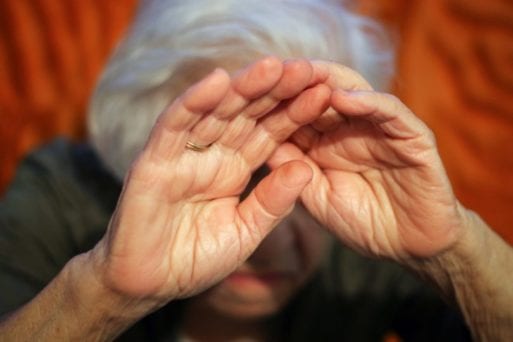It appears an alarming number of health care workers across the United States fail to report instances of potential elder abuse.
The Office of Inspector General recently produced two reports that outline the scope of the problem. Since the OIG is part of the U.S. Department of Health and Human Services, agency researchers gathered data largely from Medicare claims.
One study focused on potential elder abuse and/or neglect in skilled nursing facilities. This report was gleaned from 37,607 “high-risk hospital ER claims” for 34,820 Medicare beneficiaries who lived in skilled nursing facilities during the 2016 calendar year. The researchers reviewed 256 of those claims to see if they were the result of potential abuse or neglect.
Next, they examined whether those instances were reported to the proper Centers for Medicare & Medicaid Services (CMS) State Survey Agency. Finally, they reviewed whether CMS and the Survey Agency reported any potential abuse to local law enforcement. The report also looked at and how CMS tracks those incidents.
The second report looked at potential elder abuse or neglect regardless of where the incident may have occurred. This study covered 34,664 Medicare claims from January 2015 through June 2017. Researchers looked at beneficiaries with at least 1 of 17 diagnosis codes related to potential physical abuse; sexual abuse or rape; neglect or abandonment; or other kinds of maltreatment. They then randomly chose 100 of those claims and reviewed associated medical records for potential abuse or neglect.
Findings of the SNF Report
The report focusing solely on skilled nursing facilities found that roughly one in five high-risk hospital ER Medicare claims were the result of potential abuse or neglect. Many times the facilities failed to report these incidents to the state agency charged with investigating elder abuse.

Credit: amac.us
“Some of the cases we saw, a person is treated in an emergency room [and] they’re sent back to the same facility where they were potentially abused and neglected,” said Gloria Jarmon, the deputy inspector general for audit services.
Even when the Survey Agency was notified, a shocking number of potential abuse cases were not relayed to law enforcement as is required by law. Jarmon said that in five states where nursing home inspectors went into the skilled nursing facilities and substantiated elder abuse, “97 percent of those had not been reported to local law enforcement as required.”
Jarmon notes that many state inspectors seem confused as to when they need to report potential elder abuse. One agency claimed it only reported “the most serious abuse cases” to police.
Finally, the nursing home report concluded that CMS does not track potential abuse or neglect cases as diligently as it should. The study points out that preventing, detecting and combating elder abuse requires the cooperation of CMS, its state agencies, skilled nursing facilities, and for all to fulfill their respective responsibilities.
The Second Report’s Findings
The second report focused on potential elder abuse regardless of where it occurred. As mentioned earlier, this study identified 34,664 Medicare claims that contained diagnosis codes related to injuries that could have been caused by abuse or neglect.
An estimated 30,754 of these claims had evidence of potential elder abuse/neglect. Furthermore, 2,574 of the incidents were allegedly perpetrated by a healthcare worker, 3,330 occurred in a medical facility and 9,294 were not reported to law enforcement or Adult Protective Services.

Credit: psychcentral.com
“It’s very important that the first person who notices this potential abuse and neglect reports it,” says Jarmon, “because then they can begin the investigative process to determine if abuse or neglect occurred…And if it’s not reported, it can’t be tracked.”
The OIG study suggests CMS should better and more thoroughly use Medicare claims data to identify potential elder abuse. Some of OIG’s recommendations include a periodical examination of treatment claims to spot diagnoses that could indicate abuse as well as when and where the abuse may have occurred.
It seems that the two agencies are not in complete agreement, however. CMS says claims data is not timely enough to address an “acute” problem like identifying abuse of a Medicare beneficiary. The OIG “respectfully disagrees” with CMS, and continues to recommend the use of Medicare data to identify and address potential elder abuse.

 Government Studies Find Health Workers Still Not Reporting Potential Elder Abuse
Government Studies Find Health Workers Still Not Reporting Potential Elder Abuse



 Final Messages of the Dying
Final Messages of the Dying
 Will I Die in Pain?
Will I Die in Pain?















